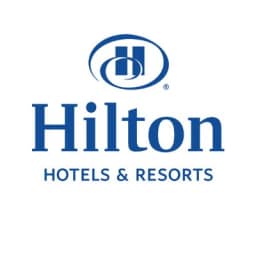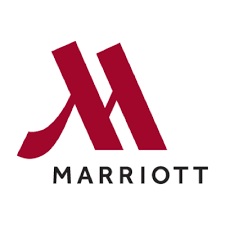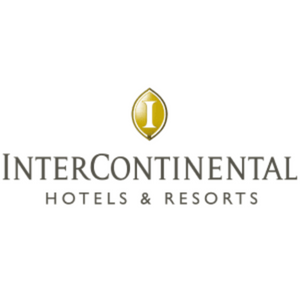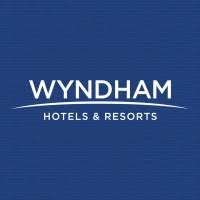Hilton Hotels Franchise in 2025: Costs, Fee & FDD
Curious about investing in the Hilton Hotels franchise? Dive into our detailed analysis to discover Hilton’s global reach, robust franchisee support, and the financial commitments involved. Learn what sets Hilton Hotels apart in the hospitality industry!

Table of Contents:
Hilton Hotels, a trailblazer in the hospitality industry, was founded in 1919 by Conrad Hilton. Conrad’s vision was simple but revolutionary: to create a network of hotels that provided unparalleled comfort and service. Over a century later, Hilton has become a global icon with over 6,400 properties spanning 119 countries. The brand’s significant influence stems from its innovative approach to hospitality and its ability to adapt to changing market needs while maintaining high standards of service.
Hilton Hotels offers a wide range of accommodations to cater to diverse traveler needs. Its core offerings include luxury hotels, mid-scale properties, and extended-stay options. Signature brands under the Hilton umbrella include the luxurious Waldorf Astoria, the upscale Hilton Garden Inn, and the convenient Hampton by Hilton. Hilton serves a broad spectrum of guests, from business travelers and vacationing families to international tourists. Its ancillary services often include conference facilities, dining options, and wellness amenities, making it a versatile choice for various customer segments.
Hilton’s reach is truly global. As of now, the franchise boasts over 6,400 hotels in its portfolio, spread across 119 countries. The scale of Hilton’s operations is impressive, with properties in major cities, tourist destinations, and emerging markets alike. Daily, Hilton welcomes millions of guests, reflecting its strong market presence and the widespread appeal of its diverse brands. This extensive network not only underscores Hilton’s success but also its ability to cater to a vast and varied customer base.
Hilton is renowned for its robust support system for franchisees. The company provides comprehensive training programs covering all aspects of hotel management, from operations to marketing. Franchisees benefit from Hilton’s established brand reputation, global marketing reach, and cutting-edge technology. The support system extends to ongoing operational guidance, access to Hilton’s proprietary systems, and a strong network of industry contacts. Hilton’s commitment to its franchisees is evident in its structured onboarding process and continuous support, ensuring that franchisees are well-equipped to succeed in the competitive hospitality market.
Hilton Hotels Franchise Insights
- Hilton Hotels is consistently ranked among the top global hotel brands, with over 580 properties in 94 countries, making it a well-recognized and trusted name in the hospitality industry.
- The Hilton Honors loyalty program boasts over 118 million members, driving repeat business and fostering customer loyalty across all Hilton properties.
- Hilton is a pioneer in sustainability, aiming to cut its environmental footprint in half and double its social impact investment by 2030, which aligns with increasing consumer demand for eco-friendly practices.
- Hilton Hotels consistently demonstrates strong financial performance, with a robust revenue model and high occupancy rates, ensuring a profitable venture for franchisees.
Hilton Franchise Key Indicators
Growth YOY (%)
1%
vs industry 2%
Total U.S. Locations
189
3-year Failure Rate
6%
vs industry 8%
Total Investment
$47.13M - $190.88M
How much does it cost to open a Hilton Hotels franchise?
Understanding the investment and capital requirements is essential when considering opening a Hilton franchise. These financial commitments, including initial franchise fees, construction costs, and ongoing operational expenses, play a significant role in determining the feasibility and potential profitability of the venture. Evaluating these factors helps prospective franchisees assess their financial readiness and make informed decisions, ensuring they are well-prepared to handle the financial responsibilities and set themselves up for long-term success in the hospitality industry.
Min & Max Investment
Opening a Hilton Hotel franchise involves several key costs, which are outlined in Item 7 of the Franchise Disclosure Document (FDD). you can see a breakdown of the costs to open a Hilton Hotel below from the most recent Item 7 below:
| Type of Expenditure | Minimum Investment | Maximum Investment |
|---|---|---|
| Franchise Application Fee | $105,000 | $105,000 |
| Property Improvement Plan | $0 | $10,000 |
| Market Study | Varies | Varies |
| Environmental Assessment | Varies | Varies |
| Real Property | Varies | Varies |
| Construction and Leasehold Improvements | $23,100,000 | $132,000,000 |
| Designer and Engineering Fees | $924,000 | $5,530,000 |
| Furniture, Fixtures and Equipment | $15,000,000 | $22,500,000 |
| Inventory and Operating Equipment | $2,000,000 | $3,500,000 |
| Signage | $25,000 | $75,000 |
| Computer Hardware and Software Systems | $109,195 | $316,695 |
| Guest Internet Access System | $136,500 | $223,500 |
| Connected Room System | $61,500 | $73,500 |
| Delphi Sales and Events System | $990 | $41,000 |
| Required Pre-Opening Training | $5,000 | $20,000 |
| ADA Consultant Fee | $2,500 | $15,000 |
| Construction/ Renovation Extension Fees | $0 | $10,000 |
| Insurance | Varies | Varies |
| Organizational Expense | $75,000 | $276,800 |
| Permits and Licenses | $346,500 | $1,980,000 |
| Miscellaneous Pre-Opening and Project Management Expenses | $1,500,000 | $3,960,000 |
| Contingencies | $2,310,000 | $13,200,000 |
| Additional Funds | $1,400,000 | $2,000,000 |
| Eforea Spa Initial Fee | $0 | $25,000 |
| Additional Funds for Eforea Spa Implementation | $0 | $4,950,000 |
| Restaurant Brand Initial Fee | $0 | $35,000 |
| Other Required Pre-Opening Services Fees | $23,979 | $28,710 |
| Total | $47,125,164 | $190,875,205 |
Item 7 in the Franchise Disclosure Document (FDD) is the “Estimated Initial Investment” section. It outlines the total costs a franchisee can expect to incur when starting a franchise, including the initial franchise fee, equipment, inventory, real estate, and other startup expenses. This section is crucial because it provides potential franchisees with a detailed understanding of the financial commitment required, helping them assess affordability and plan their investment strategy effectively.
Required Capital
To open a Hilton Hotels franchise, the required capital involves both the initial investment costs and a net worth requirement set by Hilton. Let’s take a closer look below:
- Initial Investment The total investment for a Hilton hotel is extremely high relative to other franchises. The total estimated initial investment for a Hilton Hotels franchise ranges from $47.13 million to $190.88 million. This includes all the startup costs such as the franchise fee, real estate, construction, equipment, initial inventory, and additional funds for initial operating expenses. However, you should expect to obtain financing so your equity investment should only be a fraction of the total investment required.
- Liquid Assets Requirement Hilton typically requires franchisees to have a minimum of $10 million in non-borrowed personal resources (liquid assets). This ensures the franchisee has sufficient funds to cover unforeseen expenses and maintain financial stability during the startup phase.
- Net Worth Requirement Hilton also assesses the overall net worth of the franchisee. While the specific net worth requirement can vary, it is generally recommended that franchisees have a net worth of at least $30 million. This includes the value of assets like real estate, investments, and personal property, minus any liabilities.
How Much Does a Hilton Hotels Franchise Owner Make?
The salary of a Hilton Hotels franchise owner depends on several key factors, including the hotel’s gross sales, operational costs, and efficiency. Income is influenced by revenue performance, franchise fees, property expenses, and staff wages. Effective management of these elements is crucial for maximizing profitability and determining the owner’s salary. A thorough understanding of these financial dynamics helps estimate potential earnings and ensure successful financial planning for the franchise operation.
Hilton Hotels Revenue & Gross Sales
Calculating the salary of a Hilton Hotels franchise owner involves analyzing gross sales to determine total revenue, assessing operational efficiency to understand profit margins, and accounting for franchisor fees and additional expenses such as rent, utilities, and payroll. Effective management of these factors can significantly impact the profitability and financial success of a Hilton Hotels franchise owner. This comprehensive financial analysis helps estimate net profits, from which the owner’s salary can be derived. A clear understanding of these factors ensures accurate salary projections and financial planning for sustainable business operations.
Which key factors impact the average revenue performance of Hilton Hotels franchisees?
Several factors likely influenced Hilton’s franchise revenue performance from 2023 to 2024. Market stability, including a steady recovery from the pandemic and increased travel demand, has boosted occupancy rates and average daily rates. Additionally, Hilton’s strategic initiatives, such as expanding its brand portfolio and investing in digital enhancements, have attracted a broader customer base. Franchisee confidence has also played a role, with ongoing support and training from Hilton encouraging efficient operations and high service standards. Furthermore, Hilton’s focus on sustainability and personalized guest experiences has aligned with evolving consumer preferences, contributing to sustained or improved revenue performance.
Hilton Hotels Franchise operational costs
When opening a Hilton Hotels franchise, it’s essential to consider various ongoing operational costs to ensure smooth and profitable operations. Here are some key primary costs you should keep in mind:
- Labor Salaries and wages for hotel staff, including housekeeping, front desk, management, and support staff.
- Rent or Mortgage Monthly payments for the hotel property, which can be a significant expense depending on the location.
- Utilities Costs for electricity, water, gas, and other essential services to keep the hotel running.
- Maintenance Regular upkeep of the property, including repairs, landscaping, and general maintenance.
- Supplies Ongoing purchase of guest room supplies, cleaning materials, and other operational necessities.
- Food and Beverage Costs associated with running on-site restaurants, bars, and room service.
- Marketing and Advertising Expenses for promoting the hotel, including digital marketing, traditional advertising, and loyalty program initiatives.
- Royalty Fees Payments to Hilton for using their brand, which typically include a percentage of the hotel’s revenue.
- Insurance Coverage for property, liability, and other insurance needs to protect the business.
- Technology Investments in property management systems, reservation platforms, and other technological tools to enhance guest experience and operational efficiency.
These ongoing operational costs are crucial to budget for, as they directly impact the profitability and sustainability of your Hilton Hotels franchise. Careful financial planning and management can help ensure a successful and thriving business.
Hilton Hotels Franchise Fees
Owning a Hilton Hotels franchise involves various ongoing fees that contribute to the overall cost of operating the hotel. These fees support the franchise system, brand development, and operational assistance. Key fees include:
- Monthly Royalty Fee A monthly fee paid to Hilton, calculated as 5% of Gross Rooms Revenue.
- Monthly Food and Beverage Fee Franchisees are required to pay 3% of Gross Food and Beverage Revenue.
- Monthly Spa Royalty Fee If applicable, this fee is 2% of Gross Spa Revenue, payable monthly by the 15th day of the following month.
- Monthly Program Fee Another recurring fee is the Monthly Program Fee, calculated as 4% of Gross Rooms Revenue.
- Room Addition Fee For any additional guest rooms or suites constructed after opening, a fee of $400 per room is due with the application for approval. This fee is non-refundable once Hilton approves the application.
These fees are integral to maintaining brand standards, supporting marketing efforts, and ensuring continued operational excellence. Understanding and budgeting for these ongoing costs are essential for the successful management of your Hilton Hotels franchise.
Hilton Hotels Franchise Earnings
While specific earnings data for Hilton Hotels franchises isn’t available, we can provide an informed overview based on industry standards and franchise characteristics. Hilton Hotels, with its prestigious brand reputation and extensive global presence, has the potential to generate substantial revenue in the upscale hospitality sector. Factors such as location, occupancy rates, and effective management play crucial roles in determining a franchise’s financial performance.
Industry benchmarks for similar high-end hotel franchises suggest that gross sales can vary widely, with well-located and efficiently managed properties achieving significant revenue figures. The initial investment and ongoing costs, including royalty and marketing fees, should be carefully considered when projecting potential earnings. Typically, franchises with strong support systems and comprehensive training programs, like Hilton Hotels, are better positioned to achieve profitability and sustained growth. Franchisees benefit from Hilton’s established brand, robust loyalty program, and extensive operational support, enhancing their potential for success in the competitive hospitality market.
How to Open a Hilton Hotels Franchise
Becoming a Hilton Hotels franchisee involves a structured process that ensures both the franchisee and Hilton are well-prepared for a successful partnership. Here is an overview of the steps involved, from initial inquiry to the start of operations:
- Initial Inquiry Begin by submitting an inquiry through the Vetted Biz website or through a franchise specialist. This step allows you to express your interest and gather preliminary information about the franchise opportunity.
- Preliminary Review Hilton will conduct an initial review of your background, financial capability, and business experience to ensure you meet their basic qualifications for becoming a franchisee.
- Financial Review Submit detailed financial information for evaluation. This includes your net worth, liquid assets, and ability to fund the initial investment and ongoing operational costs.
- Interview and Approval If you pass the financial review, you will be invited for an interview with Hilton’s franchise development team. This interview assesses your compatibility with Hilton’s brand values and operational standards. Upon approval, you will receive a Franchise Disclosure Document (FDD) outlining the terms and conditions of the franchise agreement.
- Franchise Agreement After reviewing the FDD and negotiating any final terms, you will sign the franchise agreement. This formalizes your commitment to becoming a Hilton franchisee.
- Training Program Participate in Hilton’s comprehensive training program, which covers all aspects of hotel management, from operations and customer service to marketing and financial management. This training ensures you are well-equipped to run your hotel successfully.
- Location Development Work with Hilton’s real estate and development team to select and develop your hotel location. This includes site selection, property design, and construction in accordance with Hilton’s brand standards.
- Pre-Opening Support Receive pre-opening support from Hilton, including marketing initiatives, hiring and training staff, and setting up operational systems. This ensures a smooth and efficient start to your hotel operations.
- Grand Opening Launch your Hilton Hotel with the support of Hilton’s marketing and operational teams. This includes coordinating a grand opening event and executing promotional strategies to attract initial guests.
- Ongoing Support After opening, continue to receive ongoing support from Hilton in areas such as operations, marketing, technology, and training to ensure sustained success and growth of your franchise.
Following these steps, you will be well-prepared to embark on your journey as a Hilton Hotels franchisee, benefiting from the brand’s extensive resources and support system.
Pros & Cons
Pros
Strong Brand Recognition: Hilton Hotels is a globally recognized and respected brand, which can attract customers and lend credibility to your franchise.
Comprehensive Training and Support: Hilton provides extensive training programs and ongoing support, including marketing, technology, and operational assistance, to help franchisees succeed.
Established Loyalty Program: The Hilton Honors loyalty program has over 118 million members, offering a built-in customer base and potential for repeat business.
Global Reach: With over 580 properties in 94 countries, Hilton’s extensive network and international presence can help drive higher occupancy rates and revenue.
Operational Efficiency: Hilton’s proven operational systems and standards help streamline hotel management, contributing to better operational performance and efficiency.
Cons
High Initial Investment: The cost to open a Hilton Hotels franchise is significant, ranging from $47 million to $191 million, which may be a barrier for the vast majority of interested potential franchisees.
Ongoing Fees: Franchisees are required to pay various ongoing fees, including royalty fees, food and beverage fees, and program fees, which can impact profitability.
Strict Brand Standards: Adherence to Hilton’s rigorous brand standards and operational procedures may limit your flexibility in managing the hotel and implementing unique ideas.
Competitive Market: The upscale hospitality market is highly competitive, with numerous established and emerging players vying for market share.
Long Approval Process: The process to become a franchisee can be lengthy and complex, involving financial reviews, interviews, and detailed site development.
These pros and cons can help you weigh the benefits and challenges of investing in a Hilton Hotels franchise and determine if it aligns with your investment goals and business strategy.





